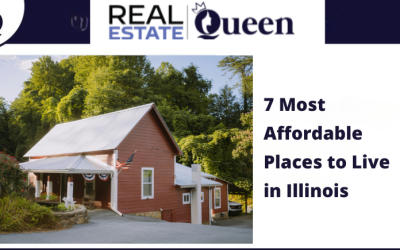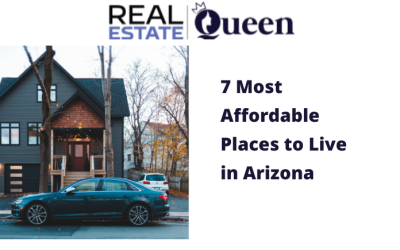
Thinking about relocating to Detroit in 2025? The average cost of living in Detroit remains nearly identical to the U.S. average, making it an affordable and attractive option. Moreover, Detroit’s storied past, lively arts scene, and resilient neighborhoods continue to draw newcomers seeking value and authentic city life.
However, affordability goes beyond raw numbers. Let’s break down what living expenses look like in practice and how Detroit compares to other cities.
TL;DR: Average Cost of Living in Detroit 2025
- Cost of living index: 103.3 (on par with U.S. average)
- Comfortable solo living salary: Around $52,000 annually
- Average rent: $1,104/month (33% lower than the national average)
- Median home price: $110,000 (16% increase YoY)
- Utilities: Average for Michigan; electricity a key factor
- Transportation: Public transit affordable; costs decreased 1.1% YoY
- Food & groceries: 1.9% YoY increase, below U.S. average
- Childcare: $800–$1,000/month for full-time care
- Healthcare: Below U.S. average, competitive regionally
What is the Average Cost of Living in Detroit in 2025?
Understanding the average cost of living in Detroit is essential for effective budgeting. Specifically, a salary of about $52,000 per year supports a comfortable solo lifestyle. This income covers essentials such as rent or mortgage, utilities, groceries, transportation, healthcare, and childcare.
To give you a clearer picture:
- Rent averages about $1,104 per month in popular neighborhoods like Corktown and Midtown.
- Utilities typically match Michigan’s standard rates, with electricity being the largest expense.
- Groceries remain affordable, with a modest 1.9% price increase last year, which is lower than the 2.7% national average.
- Transportation is budget-friendly, with public transit passes costing around $50 per month and gas prices staying reasonable.
For those relocating, Detroit offers a rare combination of urban charm and affordability not often found in other major U.S. metros.
Housing and Rental Market in Detroit
Detroit offers a balanced housing market that remains affordable but faces upward pricing pressure.
- The average rent is around $1,104 per month, placing Detroit between Lansing ($1,007) and Cleveland ($1,299) in terms of rental costs.
- The median home price is about $110,000, which has jumped 16% year-over-year, signaling increasing demand.
When compared to peer cities, Detroit’s rents and home prices are very competitive. For example, rents in Ann Arbor nearly double Detroit’s average, while Chicago’s rents and home prices are significantly higher.
Popular neighborhoods worth exploring include:
- Corktown: Detroit’s oldest community blending renovated historic homes with new developments.
- West Village: A charming neighborhood with historic architecture and a tight-knit community feel.
Those looking to buy or rent homes in Detroit can find everything from affordable starter houses to modern new construction. To explore the market, check out the latest Detroit homes for sale on Houzeo.
Utilities and Other Living Expenses in Detroit
Utility bills in Detroit align with average Michigan rates, with electricity representing the largest share.
For context:
- Ann Arbor’s utility costs are about 4% higher than the U.S. average.
- Lansing has similar increases but stays below Michigan’s highest rates.
- Cleveland enjoys rates about 14% below the national average.
- Detroit’s utilities sit comfortably at the Michigan average.
Food prices in Detroit increased by only 1.9% last year, compared to a national average rise of 2.7%. Families shopping at local hubs like Eastern Market benefit from fresh and affordable goods.
Transportation costs declined by 1.1%, with a monthly public transit pass costing approximately $50, making commuting budget-friendly. Detroit’s compact urban core also means many find walking or biking practical, adding to cost savings.
Income, Affordability, and Job Market
Detroit’s median household income, approximately $52,000, pairs well with its living expenses. While this is lower than Ann Arbor’s $70,000, it is on par with cities like Lansing and Cleveland.
Moreover, childcare costs remain reasonable, ranging from $800 to $1,000 per month, which is significantly less expensive than in Ann Arbor or Chicago.
Detroit particularly shines in affordability for renters and first-time buyers, although those interested in purchasing a home should keep an eye on the rising market prices.
Is Detroit Expensive? Understanding Detroit’s Cost of Living
Detroit remains affordable compared to most Michigan cities and many large U.S. metros. Despite recent increases in home prices, rent and most living costs remain attractive.
The city’s cultural vibrancy, walkable neighborhoods, and manageable expenses make it a compelling choice for those seeking an affordable urban lifestyle with character.
Trends and Forecast
Looking ahead, Detroit’s housing prices have risen sharply but are expected to stabilize as new development projects come online. Rent growth is slowing, providing relief to tenants.
Utility costs may see modest rises following national energy trends, but Detroit’s public transit investments and walkable neighborhoods will help residents keep transportation costs low.
Neighborhood Insights and Relocation Tips
- Midtown: A cultural hotspot with museums, theaters, and nightlife attracting young professionals.
- East English Village: Known for quiet streets and historic homes, ideal for families.
- Corktown: Detroit’s oldest neighborhood, blending modern upgrades with historic architecture.
When relocating to Detroit, it’s important to plan for modest increases in utilities and transportation costs. Additionally, prioritize neighborhoods that align with your lifestyle and budget to ensure a smooth transition and comfortable living experience.
Is Detroit Worth It?
Detroit’s average cost of living in 2025 offers a powerful value proposition. With low rents and relatively affordable homes, despite recent price gains, Detroit balances economic opportunity with quality of life.
In fact, this city provides a uniquely affordable urban experience in Michigan, making it an excellent choice for renters, buyers, and anyone seeking a fresh start.
👉 Start your home search today by exploring the latest Detroit homes for sale on Houzeo and discover neighborhoods that fit your budget and lifestyle.
FAQs
Is Detroit expensive to live in compared to other Michigan cities?
No, Detroit is more affordable than Ann Arbor and Chicago, with rent and home prices significantly lower than these metros.
What is the average rent in Detroit in 2025?
The average apartment rent is $1,104 per month, about 33% lower than the national average.
How much salary do I need to live comfortably in Detroit?
Around $52,000 annually should cover a comfortable lifestyle in Detroit.






